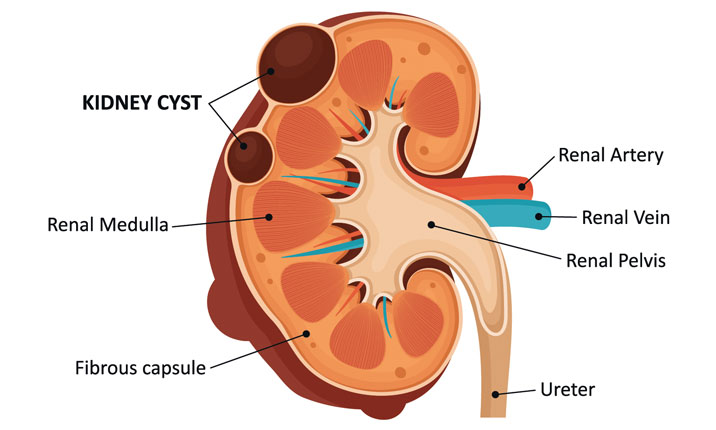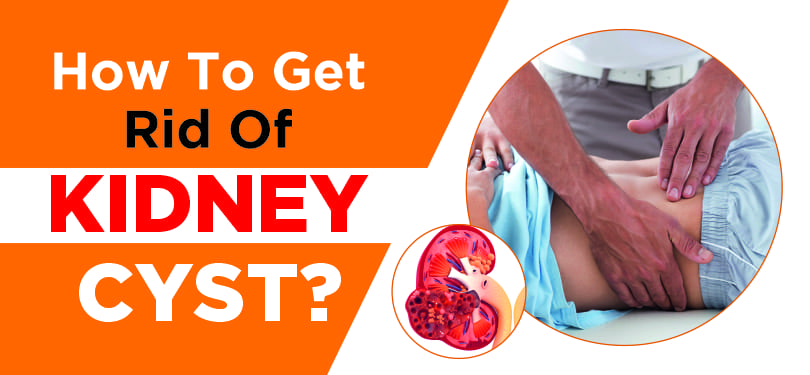Ayurveda has a history of treating many illnesses, including kidney diseases. It has carved out a unique position in the medical community regarding kidney-related or many other conditions. Ayurveda is thought to have its roots in the Vedic period, but now it is widely recognised worldwide. Ayurveda is a term used to describe a comprehensive approach to health that helps people live happy and healthy lives.
The Sanskrit words “Ayu,” which means “life,” and “Veda,” which means “knowledge,” combines and form “knowledge of life”, and there the term “Ayurveda” originates. The goal of Ayurveda is to keep the body, mind, and awareness balanced.
Consider ayurvedic treatment for polycystic kidney disease by Karma Ayurveda if you’re looking for the best Ayurveda facility for kidney cyst treatment in ayurveda.
The Allopathy branch of modern medicine is unable to provide long-lasting treatment for kidney cyst problems. With medication, however, it is possible to halt the cyst’s development and, consequently, the sickness. By suppressing the cysts, this medication also offers timely relief from problems. If you stop taking your medications, you can experience the same issues again after some time. Ayurvedic medicine for kidney cysts all through their lives and need to maintain a disciplined lifestyle that primarily consists of diet restriction and moderate exercise. A patient with a kidney cyst may need to live a limited lifestyle and rely on medicines to survive.
Dialysis is also used to remove wastes and toxins as the disease progresses, to prevent issues arising when your blood has excessive toxins. After a certain period, if the illness results in renal failure, a kidney transplant is your only chance to live. However, it’s a problematic therapy approach with numerous risks and adverse effects. As a result, this contemporary treatment cannot permanently resolve this kidney cyst condition.

Basics of Ayurveda
Despite its roots in India, today, it is well known worldwide. Ayurveda is a holistic science. It never restricts its diagnosis to signs and symptoms but also considers several additional aspects. The three doshas or bodily kinds that Ayurveda emphasises are Pitta, Vata, and Kapha. A balance must be maintained since these doshas can become out of balance and cause physical or emotional discontent associated with that element. Experts also recommend following a special diet and daily yoga to balance the body’s doshas.
Also, a kidney cyst patient can always resolve this kidney issue if he chooses the best kidney cyst disease treatment in Ayurveda. Ayurveda is a traditional medical system that works to have a permanent solution for all medical problems. The imbalance of Doshas and other essential energy in the body is addressed by kidney ayurvedic treatment. According to Ayurveda, if all of the vital internal body energies—Doshas, Dhatus, and Malas—are in harmony, they are in charge of the body’s general health and functionality. If these elements are altered, your body may experience short-term or long-term health issues. The purpose of Ayurveda is to repair or balance the body’s disturbance to help a patient restore their natural health. Kidney cyst ayurvedic medicine offers a permanent cure for polycystic kidney disease since it uses the same traditional healing techniques.
Ayurvedic kidney cyst disease treatment focuses on the illnesses, underlying causes and consequences. This natural remedy also restores kidney functionality by fixing the harm already done to your kidneys. In other words, Ayurvedic treatment for polycystic kidney disease heals kidney damage and prevents cyst formation in the kidneys. Due to the damage being repaired, your kidneys become healthy and cyst-free over time. By choosing Ayurvedic treatment for this kidney issue, a patient can permanently resolve his cyst problem.
How Ayurvedic Treatment resolves Kidney cysts?
In Ayurveda, the renal cysts are compared with Granthi. A granthi occurs due to the accumulation of morbid dosha in the body tissues. Ayurvedic literature has identified nine forms of Granthis, depending on the pathological factors and the body tissues affected. Pathogenesis of Granthi is defined as when aggravated Tridoshas, vitiate Meda (fat/adipose tissue), Mamsa (fleshy/muscles), and Rakta (blood), with Kapha; they generate a knotty, rounded protuberant, hard swelling called Granthi. These can be correlated to cysts too. As a proven practice, Ayurveda helps eliminate kidney disease and restore damaged Kidney cells.

To do so, ayurvedic herbs are used to improve Kidney functioning. Ayurveda is effective in the treatment of all stages of renal concerns. All you need is to connect with the best ayurveda hospitals. So, approach Kidney treatment in Karma Ayurveda Online Store.
There are various Ayurvedic herbs effective in treating kidney cysts that aid the kidney in restoring the filteration capacity and enhancing the overall kidney functioning. The ayurveda principle helps dissolve kidney cysts and end your kidneys free from cysts.
Herbal preparations, natural therapies, dietary adjustments, and other measures are part of the treatment.
Ayurveda provides you with a complete treatment package for kidney cyst disease. It sets you free from all kidney-related complications, with no adverse effects following. Karma Ayurveda provides the best ayurvedic treatment for kidney cysts.

